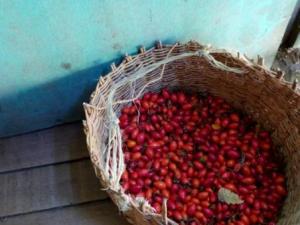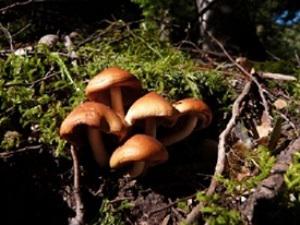Antonia Barreau Daly
This project aims to:
(1) document ethnobotanical knowledge of wild edible plants of local people inhabiting Andean temperate forests,
(2) promote sustainable harvesting practices, and
(3) reconstruct local memories in relation to traditional food systems and the landscape.

Rose hip even though Rose hip is not native to the area, it grows wild and it is used for making Rose hip jam and also as a natural remedy.
The temperate forests of Chile are classified a biological ‘‘hotspot’’ as a result of their high species diversity and high endemism. However, they are being rapidly destroyed and fragmented, with significant negative impacts on biological and cultural diversity. . This speaks to the urgent need for integrative conservation strategies. In Chile, successful conservation initiatives involving forest-dwelling communities highlight the importance of local valuation of forests in its different forms.

Forest mushroom.
Forests are a considerable source of biodiversity and, as such, are inextricably linked to people’s food, health and belief systems in a number of fundamental ways. Despite this important relation, the use of forest wild edibles by small-scale societies has received little study in many parts of the world, including southern Chile. In addition, because traditional food systems, once lost, are difficult to recreate, there is an imperative need for documentation, collection and dissemination of knowledge of biodiversity and its uses, especially in the face of erosion due to acculturation and globalisation.
This project is documenting the use of wild edibles by local people, but is also exploring the heterogeneity of ethnobotanical knowledge and consumption of forest edible plants, as a reflection of food systems change through time. On a broader scale, the study will: (1) provide a basis for understanding in what way local communities depend on forest biodiversity as a source of food, (2) offer insights on how traditional practices of resources, designed over centuries of community-nature relations, may result in biodiversity conservation, and therefore (3) it will help visualize the impacts of forest loss on the lifeways and wellbeing of those communities and vice versa.
We think there is a great need for acknowledging that local environmental knowledge and practices hold a key for understanding integrative ecosystem management and effective biodiversity conservation. Promoting the local valuation of forests and recognising the importance of traditional practices can be grassroot factors for achieving conservation outcomes. This understanding may inform more integrative and applicable policies towards forest and cultural heritage conservation.